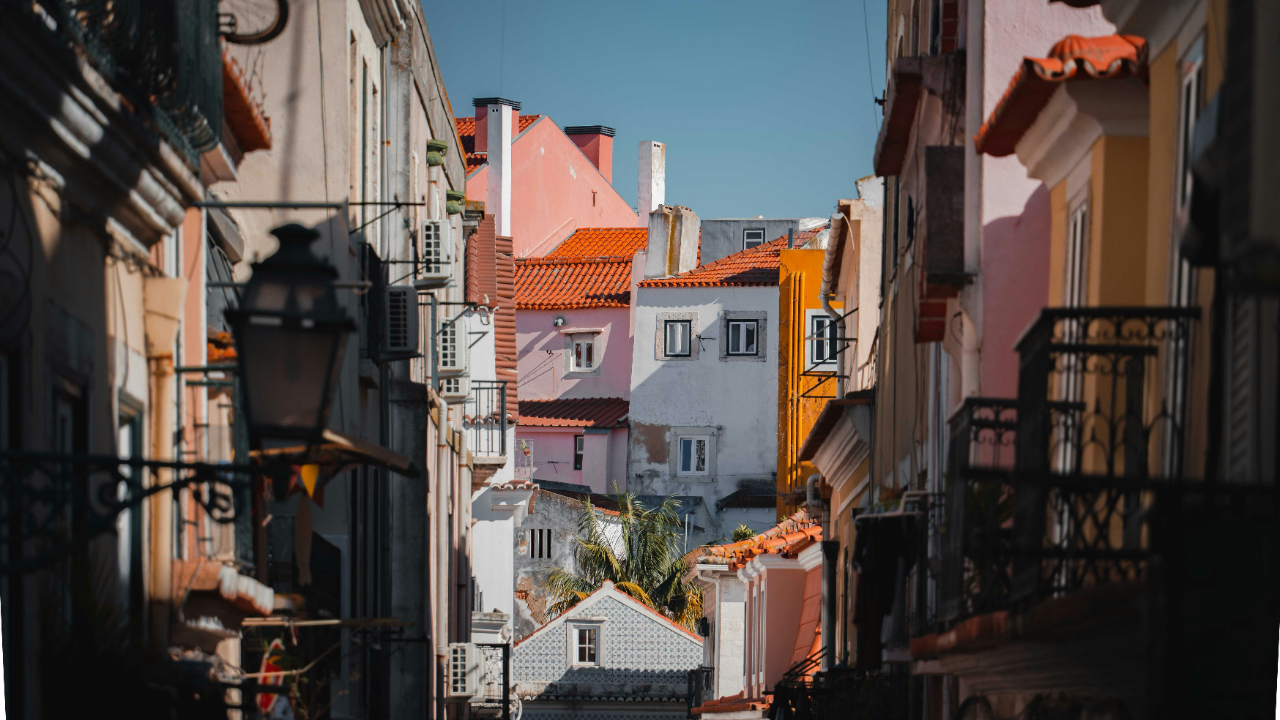What Does it Really Cost to Move to Portugal?
Nov 10, 2024
When we were researching a move to Portugal several years ago, we found a lot of information about the cost of living once you moved to Portugal. But it was harder to find reliable information about the costs of moving to Portugal. We found out the hard way that it can be very expensive.
NOTE: Since we originally posted this video on YouTube, a lot of people have weighed in about how these costs compare with their own experience. If you’re planning a move to Portugal, we recommend reading through those comments here.
Here is a breakdown of the six major expenses of moving to Portugal, how much we paid, and tips for saving money if you plan on moving to Portugal.
Moving to Portugal Costs
1. Portugal Visa Application Costs
Applying for a visa can be a costly process, and costs vary by country and visa type. Here’s a general breakdown based on our experience moving from the U.S. to Portugal in 2023.
- NIF (Portuguese Tax ID Number): We used Bordr to help us obtain our NIFs, which cost about $300 for two people. A NIF is essential for opening a bank account and paying taxes in Portugal.
- Visa Appointment with VFS: VFS is a third-party company handling visa documents for the Portuguese embassy. We paid $120 to schedule our in-person appointment with them.
- FBI Background Check: For the required background check, including fingerprinting, we paid around $150 for both of us.
- Health Insurance: For the D7 visa, we needed specific health insurance for our first few months in Portugal. Our plan cost $400 for four months for two people.
- Proof of Funds: For the D7 visa, we had to show proof of at least €13,000 in a Portuguese bank account. Some applicants use Bordr to help open their accounts.
- Housing Documentation: Proof of housing is required, and this is an area where costs can vary (more on housing below).
- Visa Fees at VFS: During our VFS appointment, we paid an additional $325 in fees.
Total cost for visa application: About $1,100 for the application process alone, plus another $13,000 to show in a Portuguese bank account. If you’re applying for a digital nomad visa instead, requirements may differ.
-
Travel: Portugal Scouting Trip Costs
Moving internationally often involves several pre-move trips. We broke this down into two types of trips before our official move: scouting trips and what we call transaction trips.
Scouting Trips
- Flights: We took three scouting trips to Portugal, each costing around $600 per person. For two people, that added up to $3,600.
- Car Rentals: We rented a car for each trip, costing approximately $100 per day, totaling $2,400 across all trips.
- Accommodation: Staying in hotels and Airbnbs cost us around $2,300.
- Estimated Total for Scouting Trips: $8,300 (not including meals and incidentals).
Transaction Trips
- Closing and Furnishing: We made two additional trips specifically to close on and furnish a property. One month-long trip for closing and furnishing cost us about $5,600. The second trip cost us around $2,200.
- Total Travel Expenses (Scouting + Transaction Trips): Over $16,000.
Pro Tip: Budget extra for unexpected travel costs, as we had to make more trips than originally planned due to some unforeseen setbacks.
3. Housing: Renting vs. Buying
A big difference in moving costs is based on whether you decide to rent or buy a home.
Portugal Renting Costs
- Double Housing Costs: Since you’ll need proof of housing for the visa, you may have to pay rent in Portugal before arriving. This means double housing costs for a few months.
- Rental Deposits: Typically, landlords require a deposit of up to three months’ rent.
- Estimated Rental Costs (example): If your rent is $2,000 per month, total upfront costs (three months of rent + deposit) could reach around $12,150 before you even arrive.
Portugal Real Estate Costs
- Down Payment: Non-residents usually need a 25-30% down payment.
- Closing Costs: Expect to pay 3-10% of the purchase price in closing costs, including a transfer tax called IMT.
- Repairs and Renovations: Factor in additional costs for any necessary repairs or improvements.
4. Furnishing Your New Home
If you’re buying or renting unfurnished, furnishing costs can be significant.
- Shipping Costs: Shipping belongings to Portugal can cost between $2,000 and $20,000 depending on how much you bring. One person we know spent $7,000 on a 20-foot container.
- Replacement Costs: Instead of shipping items, many expats choose to buy new furniture upon arrival. We furnished two units for Airbnb rentals, costing around $12,000-$15,000.
5. Moving Day Expenses
Moving day has its own set of costs beyond flights.
- Flights: Our one-way flights cost around $600 each.
- Baggage Fees: We paid $300 for extra checked bags.
- Car Rental: Since we sold our car, we rented one for our final week in the U.S. ($600) and the first two weeks in Portugal ($1,400).
- Pet Travel: Moving our dog cost an additional $1,200.
- Total Moving Day Expenses: About $4,100.
6. Transportation: Buying a Car in Portugal
Depending on where you live in Portugal, owning a car may or may not be necessary.
- Shipping a Car: Shipping a car from the U.S. to Portugal starts around $1,150, plus a VAT of 21% and other import fees.
- Buying a Car: We bought a used Renault for €23,000. Cars in Portugal are generally more expensive than in the U.S., with added costs for automatic transmission models.
- Alternative: Public transportation is reliable in cities like Lisbon and Porto, so a car might not be necessary if you’re in an urban area.
Tips to Save Money Moving to Portugal
Based on our experience, here are some tips to help you save time and money as you plan your move:
Do Your Research: Research as much as possible before arriving. Join expat groups on Facebook, watch YouTube videos, and read articles.
Plan for the Unexpected: Unexpected expenses happen. Adding a 20% buffer to your moving budget can help cover these surprises.
Align Your Budget with Your Goals: Consider your long-term plans. If you’re planning a temporary stay, renting furnished housing in a city with public transit may save you money compared to buying and furnishing a home.
Get Exact Quotes When Possible: General estimates are helpful, but exact quotes are better. Contact service providers for specifics on moving costs like shipping, housing deposits, and visa fees.
Consider the Payback Period: Moving costs can be high upfront. If you’re moving for the lower cost of living, it may take a few years to “break even” on your initial investment.
Was It Worth It?
Now that we’re settled, was the move worth the costs? We think so, but it’s not for everyone. Moving internationally comes with financial and logistical challenges, so weigh these costs carefully to decide if it’s the right choice for you.
→ Ready to explore further? Sign up for our Free Moving to Portugal Mini-Guide: A 10-Day Email Course covering the most common questions about visas, healthcare, language, real estate, and more. Get the free guide →
This blog post contains affiliate links. We may receive a small commission at no additional cost to you.
Photo by Ryutaro Tsukata: https://www.pexels.com/photo/lisbon-residential-district-roofs-in-twilight-5191373/
Sign up for the Weekly Newsletter
Sing up to receive weekly insights about living abroad, building flexible income, and travel over 50.
We hate SPAM. We will never sell your information, for any reason.






